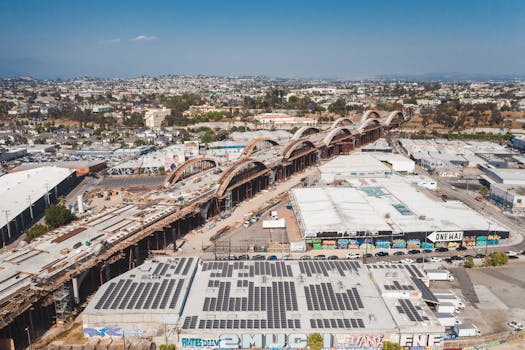
The Role of Telecom in Driving Africa’s Smart City Initiatives
Focus Keyword: Telecom in Africa’s Smart City Initiatives
The role of telecom in driving Africa’s smart city initiatives is multifaceted and crucial for the continent’s sustainable urban development. As Africa’s cities continue to grow and expand, the demand for efficient, reliable, and sustainable infrastructure increases. The telecom industry is at the forefront of this development, providing the necessary infrastructure and technologies to support smart city initiatives.
According to a report by the International Telecom Union (ITU), the number of urban residents in Africa is expected to increase from 455 million in 2018 to 1.3 billion by 2050. This rapid urbanization poses significant challenges, including inadequate infrastructure, poor public services, and increased pressure on natural resources. However, it also presents opportunities for innovation and investment in smart city technologies.
The African Union’s Agenda 2063 emphasizes the importance of leveraging technology and innovation to drive sustainable development and economic growth. The agenda highlights the need for investments in digital infrastructure, including broadband, data centers, and cloud computing, to support the development of smart cities.
Telecom Infrastructure and Smart City Initiatives
Telecom infrastructure is the backbone of smart city initiatives, providing the connectivity and data transmission capabilities necessary for various smart city applications. The deployment of fiber optic cables, mobile networks, and other telecom infrastructure is essential for supporting the growth of smart cities in Africa.
For instance, the development of smart transportation systems, such as intelligent traffic management and smart parking, relies heavily on telecom infrastructure. These systems use real-time data and analytics to optimize traffic flow, reduce congestion, and improve public safety. The use of IoT sensors, GPS, and other technologies also depends on reliable and high-speed telecom infrastructure.
Furthermore, telecom companies are investing heavily in the development of smart city infrastructure, including data centers, cloud computing, and cybersecurity solutions. These investments are critical for supporting the growth of smart cities and providing the necessary infrastructure for various smart city applications.
Telecom Technologies and Smart City Applications
Various telecom technologies are being used to support smart city initiatives in Africa, including IoT, big data analytics, and artificial intelligence. These technologies are being applied in various sectors, such as energy, water, transportation, and public safety.
For example, the use of IoT sensors and big data analytics is being used to optimize energy consumption and reduce waste in smart cities. The deployment of smart grids and smart meters is also becoming increasingly popular, enabling real-time monitoring and management of energy distribution.
Additionally, telecom companies are using artificial intelligence and machine learning to improve public safety and security in smart cities. The use of facial recognition, surveillance cameras, and other technologies is being used to detect and prevent crime, improving the overall safety and security of citizens.
Challenges and Opportunities
Despite the significant progress made in driving Africa’s smart city initiatives, there are still several challenges that need to be addressed. One of the major challenges is the lack of adequate telecom infrastructure in many African cities, making it difficult to support the growth of smart cities.
Furthermore, the high cost of deploying and maintaining telecom infrastructure is a significant barrier to the adoption of smart city technologies. The lack of standardization and interoperability between different telecom systems and technologies is also a major challenge, making it difficult to integrate different smart city applications.
However, these challenges also present opportunities for innovation and investment in the telecom sector. The development of new business models, such as pay-as-you-go and subscription-based services, can help reduce the cost of deploying and maintaining telecom infrastructure. The use of open-source technologies and standardization can also help improve interoperability and reduce costs.







